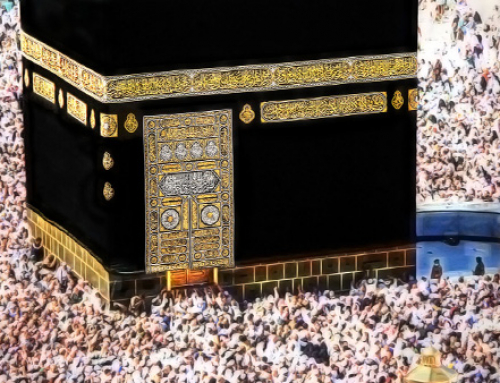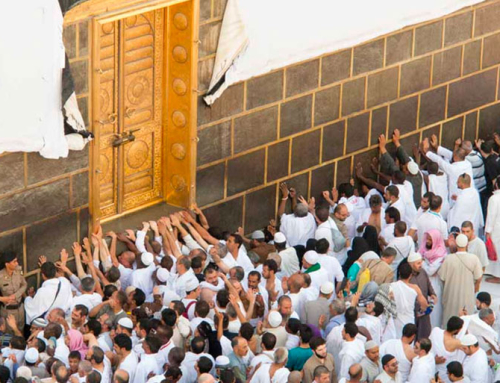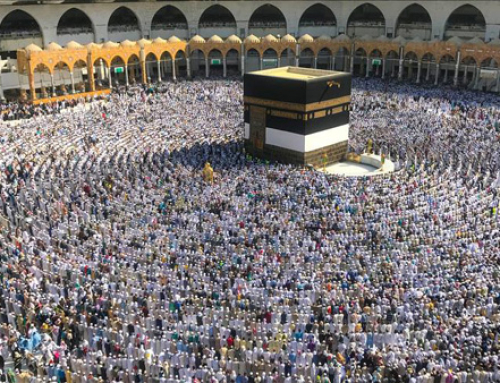Mounir Birouk
October 10, 2014
Because of our forgetful nature, God the Almighty decreed seasons when human beings are exposed to Divine zephyrs to insulate them from the density of the matter and transport them to states when their souls becomes more transparent and closer to eternity. One of these blessed occasions which dawn upon us these days, but which often pass unnoticed, are the first ten days of Dhu al-Hijja. How graceful are they? And what should be done in them?
The Virtue of the first ten days of Dhu al-Hijja
For their greatness and superiority, it suffices to remember that God the Almighty swears by these days in His Holy Book: (By the dawn. And [by] ten nights) [89:1]. Their significance is equally stressed in the most exclusive terms by the prophet [God bless him and grant him peace]. In a hadith narrated by al-Bukhari may God be pleased with him, the prophet [God bless him and grant him peace] said that “there are no days in which the person does good deeds that are more beloved to God than the first ten days of Dhu al-Hijja”. He was asked, “not even fighting for the sake of God?”. He replied, “not even fighting for the sake of God, except a person who sets out with his life and his wealth and returns with neither.” Some scholars understood from this hadith that these days are even more blessed than and superior to the month of Ramadan whose virtues we all know.
What to be done during these days
Hajj and Umrah: Hajj can only be performed during these days. Whoever is blessed to go to Hajj and perform its rituals in the proper manner is hopefully included in the Hadith of the prophet [God bless him and grant him peace]: “an accepted Hajj brings no less a reward than Paradise.” The prophet [God bless him and grant him peace] equally urged us to “follow up the Hajj and Umrah, because they certainly remove poverty and sins as fire separates the impurities from iron, gold and silver” [narrated by Tirmidhi, Ibnu Khuzaimah, Ibnu Hibbaan].
Prayer: Prayer is undoubtedly the greatest of the good deeds, and we are admonished to do it on its time and collectively. In addition to the five obligatory prayers, voluntary prayer, and particularly night prayer, are all of them deeds which draw the believer close to the Lord and His Love.
Fast: Fasting is also a deed which is so great that God the Almighty attaches it to Himself: “every deed of the son of Adam is his except fasting; it is Mine, and I am the One Who rewards for it.” Rather than fasting only on the day of Arafat as most people do, the believer should strive not to let the first nine days of Dhu al-Hijja go without fasting on them all or at least some of them. “Fasting on these days is highly recommended”, says Imam Nawawy.
Charity: Giving alms to the poor and offering help to the needy undoubtedly falls under the “good deeds” which we are urged to do in these days to incur the love of God. God most High and Great says: (And spend [in the way of Allah] from what We have provided you before death approaches one of you, and he says, (My Lord, if only You would delay me for a brief term so I would give charity and be among the righteous) [63:10].
Remembrance of God: abundant dhikr is the landmark of the pious and the indispensable food of the God-seeking believer. Indeed, God instantiates the blessed days of Dhu al-Hijja so that Muslims “may witness benefits for themselves and mention the name of Allah on known days over what He has provided for them of [sacrificial] animals.” On the authority of Imam Ahmed, the prophet said “there are no days which are greater or in which deeds are beloved to Him than in the first ten days of Dhu al-Hijja. So, do mention His name, glorify Him and praise Him”.
Good deeds as everybody knows are not limited to the above-mentioned. However, the Muslim is called upon to do his best to aspire for the highest degrees of spiritual excellence. The destination should be God; there is no god but Him, and Mohammed is His messenger.





